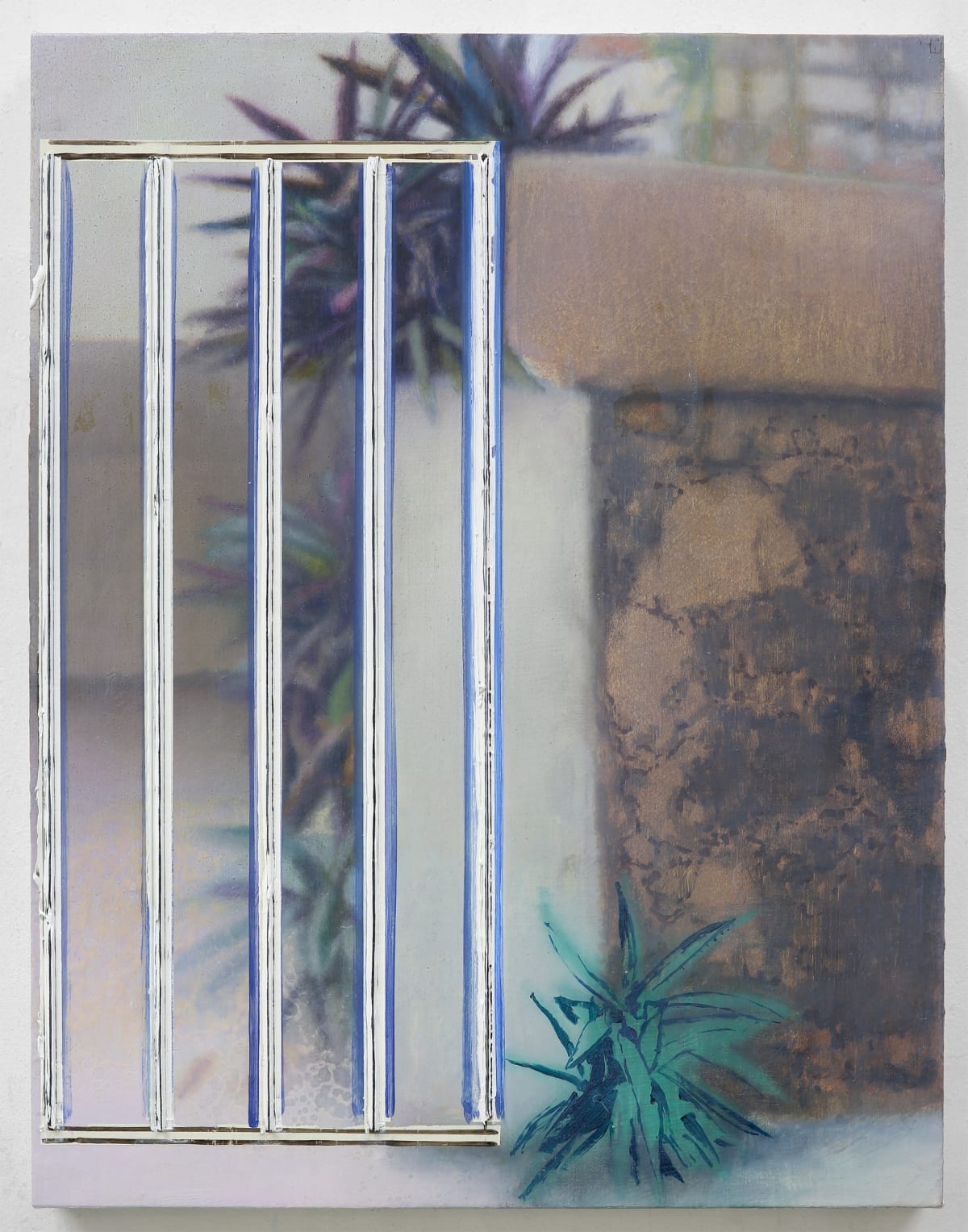Dil Hildebrand - Conservatorium
08 Sep - 15 Oct 2022
Pierre-François Ouellette art contemporain is pleased to present Conservatorium, an exhibition of new paintings and works on paper by Dil Hildebrand that examine nature and its representation. In Conservatorium, Hildebrand has appropriated images from greenhouses and botanical gardens taken from his travels. Working in oils once again and a set of prints for the first time, the artist applies his signature language of trompe l'oeil and abstraction to bring new meaning to these gardens of human intervention.
Hildebrand's compositions seem to mimic the structures of greenhouses. Throughout the exhibition one perceives a distorted version of typical greenhouse architecture: rails of white bring to mind cages and fences, separating the viewer from jungle flora too far away to touch. Shards that frame hanging plants appear like shattered glass, warning that an ill-advised reach might result in a scraped arm. Under Hildebrand's care, these architectural framing devices are bent to the interests of a formal language familiar to abstract painting. Thick passages speak directly to the visceral weight of the paint itself. Heavily scarred surfaces on the paintings point to a restless process of manufacture; space and surface within them appear to be in physical conflict.
We see Hildebrand's ongoing interest in the capacity for imagery to touch upon our awareness in a distinctly physical way. The paintings, he points out, "ask the question: Do you belong here? Where are you, in relation to me? Paintings place you somewhere; that place may be inside a figment of the artist's imagination, or it could be in a place that the artist wants you to feel is, in a way, optically real, and therefore relates to your body in a physical way." Carefully rendered photographic images at first draw the viewer into fuzzy details. Panels and portholes appear to frame and re-orient the bodies standing in front of them, while not permitting them to do so comfortably. These abstractions, while framing our views into Hildebrand's gardens, also give rise to a suspicion that the promise of nature that greenhouses hold may only be a distant mirage, fading into blurry recollection. Perhaps the botanical garden that is meant to bring us into proximity with nature only succeeds to underline how apart we truly are.
Hildebrand's compositions seem to mimic the structures of greenhouses. Throughout the exhibition one perceives a distorted version of typical greenhouse architecture: rails of white bring to mind cages and fences, separating the viewer from jungle flora too far away to touch. Shards that frame hanging plants appear like shattered glass, warning that an ill-advised reach might result in a scraped arm. Under Hildebrand's care, these architectural framing devices are bent to the interests of a formal language familiar to abstract painting. Thick passages speak directly to the visceral weight of the paint itself. Heavily scarred surfaces on the paintings point to a restless process of manufacture; space and surface within them appear to be in physical conflict.
We see Hildebrand's ongoing interest in the capacity for imagery to touch upon our awareness in a distinctly physical way. The paintings, he points out, "ask the question: Do you belong here? Where are you, in relation to me? Paintings place you somewhere; that place may be inside a figment of the artist's imagination, or it could be in a place that the artist wants you to feel is, in a way, optically real, and therefore relates to your body in a physical way." Carefully rendered photographic images at first draw the viewer into fuzzy details. Panels and portholes appear to frame and re-orient the bodies standing in front of them, while not permitting them to do so comfortably. These abstractions, while framing our views into Hildebrand's gardens, also give rise to a suspicion that the promise of nature that greenhouses hold may only be a distant mirage, fading into blurry recollection. Perhaps the botanical garden that is meant to bring us into proximity with nature only succeeds to underline how apart we truly are.

